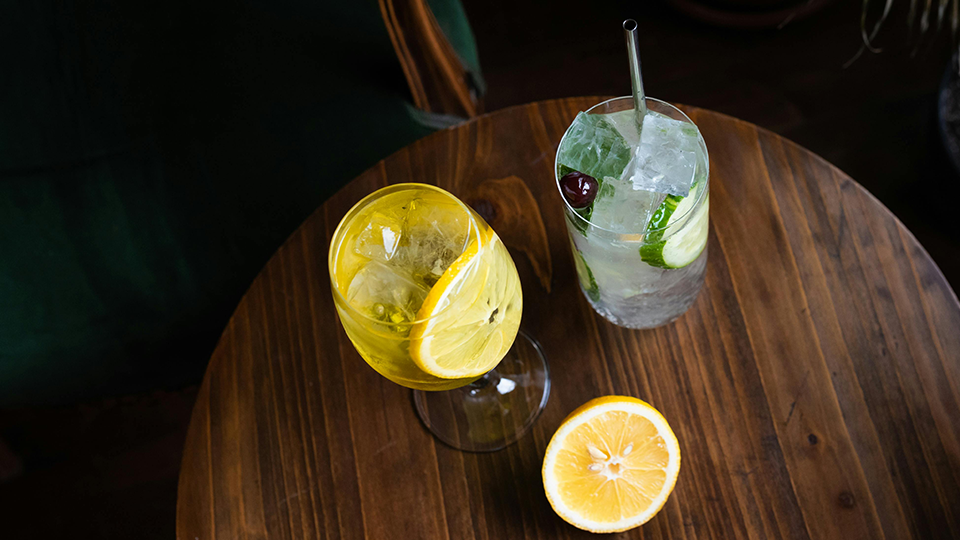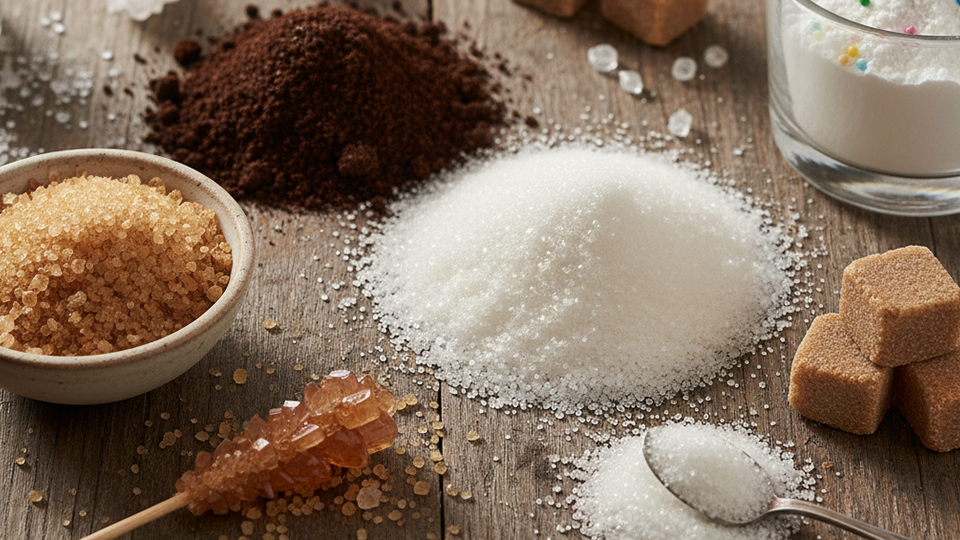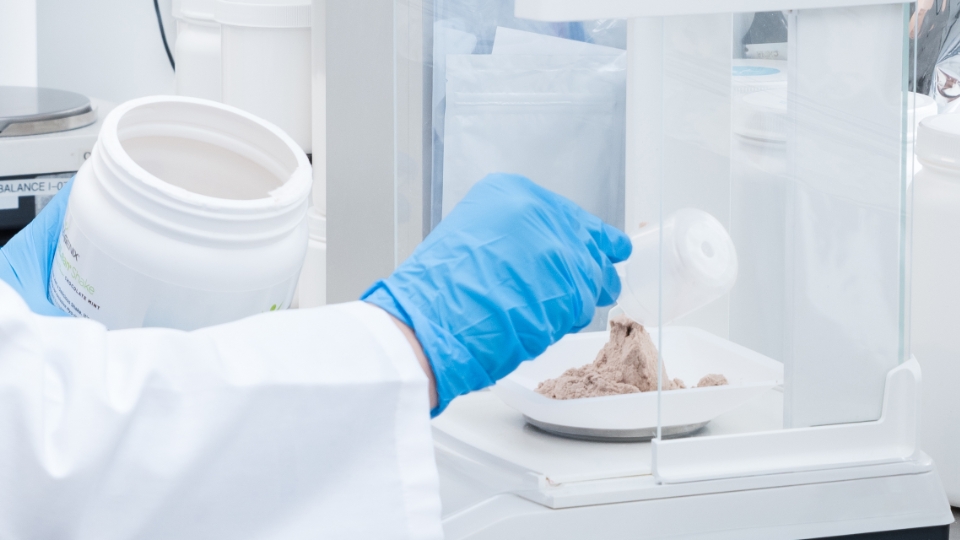BĒA Biotics™ is a refreshing, sparkling beverage with wellness benefits. Its targeted blend of ingredients promotes digestive wellbeing while offering a naturally caffeine-free boost from uplifting adaptogens and botanical ingredients like ginseng.
It’s hard to feel like anything in life is going smoothly when your digestion is off balance. Yet too often, busy lifestyles make it hard to look after our digestive health. From stress to poor sleep to an unbalanced diet, common elements of modern life can impact how our digestive system functions and, in turn, our overall sense of wellbeing.
Any factor that influences digestive function also has an impact on the gut microbiome. This complex community of microbes has a tremendous influence on our health, and scientific research continues to reveal new, surprising ways that the microbiome can affect wellbeing. Scientists have uncovered deep connections between the health of the gut microbiome and our cardiovascular health, brain health, and immune function, just to name a few (1-3).
With ties to nearly every system throughout the body, it’s clear that digestive health is central to overall wellbeing. Nutrition is a powerful tool to support digestive health, and functional ingredients like probiotics and select botanical ingredients can provide added benefits on top of a healthy eating plan and balanced diet.
What’s Inside: Key Ingredients in BĒA Biotics
BĒA Biotics is brimming with good-for-you ingredients, carefully selected to enhance digestive health. Its naturally caffeine-free formula is boosted with adaptogens, including American ginseng, shiitake and maitake mushrooms, for a wellness drink that is as uplifting as it is delicious.
Bacillus coagulans: This probiotic contributes to digestive wellness and has a positive impact on the community of microbes that make up your gut microbiome. It’s known for its hardiness and ability to grow and flourish even after exposure to harsh conditions (4).
Apple Cider Vinegar: Widely used for centuries, this fermented functional ingredient is a rich source of polyphenols and other bioactive components that interact with the gut microbiome to promote digestive health (4, 5).
Prebiotic Plant Fiber: Prebiotic fiber supports the growth of beneficial microbes in the digestive tract and makes a strong contribution to digestive wellbeing. BĒA Biotics contains potent plant-sourced prebiotics, including inulin and tapioca fiber (7).
Aloe vera juice: Known for its soothing properties, Aloe vera contains a mix of components that contribute to a healthy microbiome by promoting the growth of beneficial bacteria in the gut (8).
Shiitake and Maitake Mushrooms: Rich in beta-glucans, these functional superfoods have been used for hundreds of years to enhance vitality and help the body to adapt to the effects of stress (9, 10).
American ginseng (Panax quinquefolius) root extract: This highly sought-after root is prized for its uplifting effects and ability to support mental performance and physical vitality (11, 12).
Wellbeing Sip by Sip
BĒA Biotics can be enjoyed daily for its digestive wellness benefits or any time you need a caffeine-free boost of botanical energy and adaptogens. BĒA Biotics is a refreshing addition to your day and is a perfect complement to any Isagenix system and can be enjoyed on both Cleanse Days and Shake Days.
References
- Jie Z, Xia H, Zhong SL, et al. The gut microbiome in atherosclerotic cardiovascular disease. Nat Commun. 2017;8(1):845. Published 2017 Oct 10. doi:10.1038/s41467-017-00900-1
- Osadchiy V, Martin CR, Mayer EA. The Gut-Brain Axis and the Microbiome: Mechanisms and Clinical Implications. Clin Gastroenterol Hepatol. 2019;17(2):322-332. doi:10.1016/j.cgh.2018.10.002
- Takiishi T, Fenero CIM, Câmara NOS. Intestinal barrier and gut microbiota: Shaping our immune responses throughout life. Tissue Barriers. 2017;5(4):e1373208. doi:10.1080/21688370.2017.1373208
- Lee NK, Kim WS, Paik HD. Bacillusstrains as human probiotics: characterization, safety, microbiome, and probiotic carrier. Food Sci Biotechnol. 2019;28(5):1297-1305. Published 2019 Oct 8. doi:10.1007/s10068-019-00691-9
- Kalemba-Drożdż M, Kwiecień I, Szewczyk A, Cierniak A, Grzywacz-Kisielewska A. Fermented Vinegars from Apple Peels, Raspberries, Rosehips, Lavender, Mint, and Rose Petals: The Composition, Antioxidant Power, and Genoprotective Abilities in Comparison to Acetic Macerates, Decoctions, and Tinctures. Antioxidants (Basel). 2020;9(11):1121. Published 2020 Nov 13. doi:10.3390/antiox9111121
- Wan MLY, Co VA, El-Nezami H. Dietary polyphenol impact on gut health and microbiota. Crit Rev Food Sci Nutr. 2021;61(4):690-711. doi:10.1080/10408398.2020.1744512
- Holscher HD. Dietary fiber and prebiotics and the gastrointestinal microbiota. Gut Microbes. 2017;8(2):172-184. doi:10.1080/19490976.2017.1290756
- Chiodelli G, Pellizzoni M, Ruzickova G, Lucini L. Effect of Different Aloe Fractions on the Growth of Lactic Acid Bacteria. J Food Sci. 2017;82(1):219-224. doi:10.1111/1750-3841.13568
- Wu JY, Siu KC, Geng P. Bioactive Ingredients and Medicinal Values of Grifola frondosa(Maitake). Foods. 2021;10(1):95. Published 2021 Jan 5. doi:10.3390/foods10010095
- Roszczyk A, Turło J, Zagożdżon R, Kaleta B. Immunomodulatory Properties of Polysaccharides from Lentinula edodes. Int J Mol Sci. 2022;23(16):8980. Published 2022 Aug 11. doi:10.3390/ijms23168980
- Arring NM, Millstine D, Marks LA, Nail LM. Ginseng as a Treatment for Fatigue: A Systematic Review. J Altern Complement Med. 2018;24(7):624-633. doi:10.1089/acm.2017.0361
- Ossoukhova A, Owen L, Savage K, et al. Improved working memory performance following administration of a single dose of American ginseng (Panax quinquefolius L.) to healthy middle-age adults. Hum Psychopharmacol. 2015;30(2):108-122. doi:10.1002/hup.2463





